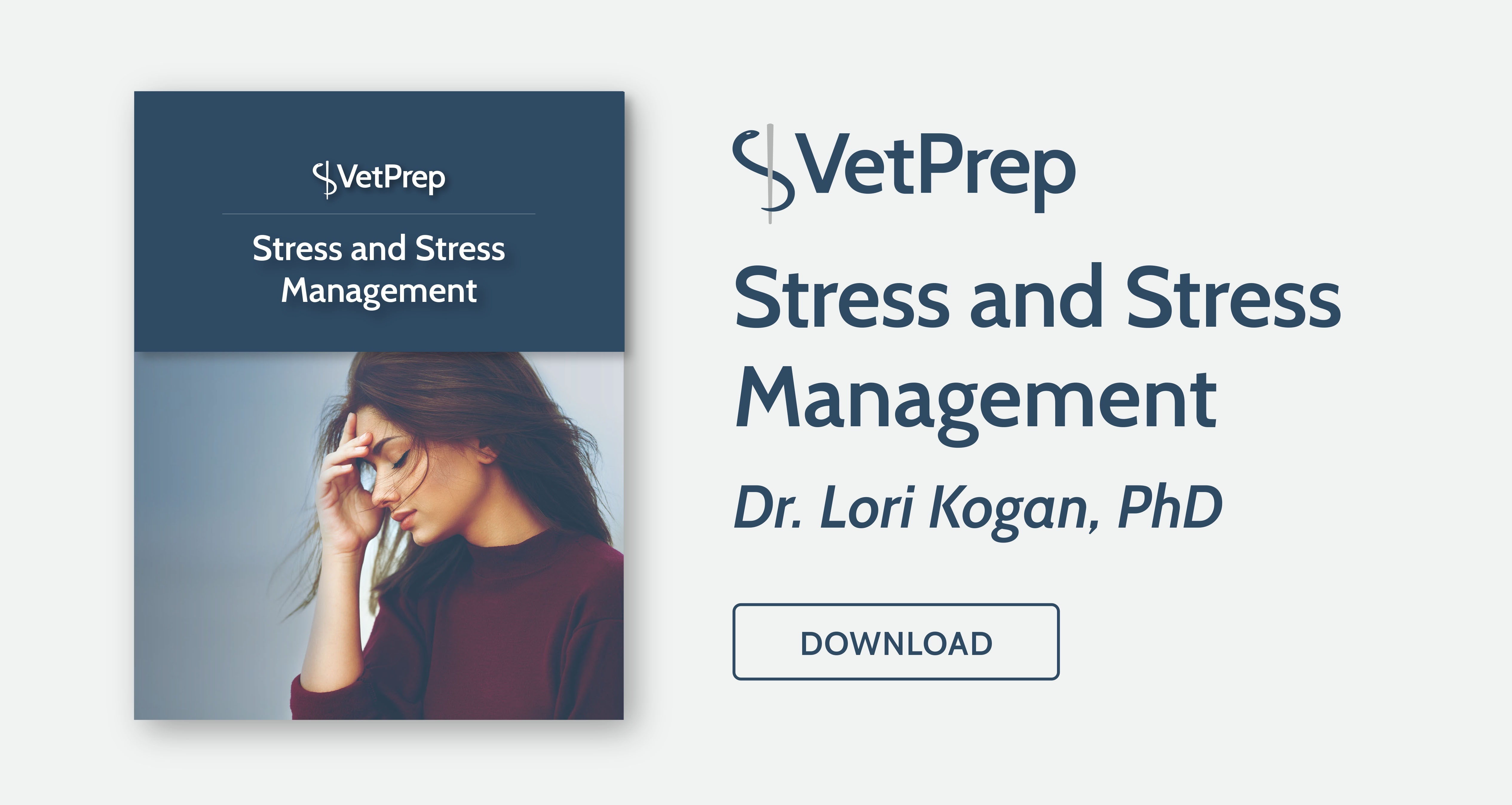
Do you ever experience stress as a vet student?
Do you expect to experience stress as a new grad veterinarian?
If you answer honestly, I suspect your answer to both of those questions is “yes.” You might even be looking for a way to incorporate stress reduction into your life, but it can sometimes be difficult to set aside time for involved, time-intensive stress-reduction practices like yoga classes or meditation retreats.
Fortunately, there’s a quick and easy approach, known as mindfulness, that has been proven to help reduce stress and anxiety... even in vet students!
What is Mindfulness?
Mindfulness is a form of meditation, in which you focus your full attention on an object or action. While other forms of meditation may focus on spiritual aspects, visualizations, chants, and other actions designed to promote relaxation, mindfulness emphasizes “intentionally being fully present in each moment with kindness, nonjudgmentally and without striving for things to be any different than they are.”(1) When practicing mindfulness, we’re encouraged to step back from our usual, automatic way of seeing and experiencing the world in order to be more aware of what’s going on around us. We observe our thoughts and feelings without judgement and focus on the present moment.
Mindfulness-based stress reduction was initially developed over 30 years ago, as an eight-week course at the University of Massachusetts Medical School.(2) This approach was initially developed to help patients with chronic pain and mental health issues, although its use has become much more widespread over time. There are now many individuals who use mindfulness techniques to help them manage routine stresses.
What are the Benefits of Mindfulness?
According to the American Psychological Association,(3) mindfulness has the following research-supported benefits:
- Decreased rumination (repeatedly dwelling on negative experiences and emotions)
- Decreased stress and anxiety
- Decreased emotional reactivity
- Improved memory and concentration
- Improved relationship satisfaction
It is easy to see how all of these benefits would be valuable for anyone in a high-stress setting, including vet students and practicing veterinarians.
Can Mindfulness Help Vet Students?
In our busy lives as vet students and veterinarians, where much of our time is spent in fight-or-flight mode, mindfulness helps us learn to step back and slow our automatic reactions.
Several studies have examined the benefits of mindfulness techniques on veterinary students, showing improvements in mood and stress level.
A 2017 study examined the efficacy of mindfulness techniques taught within the veterinary curriculum. In this study, the researchers focused on a particular subgroup of the student population: those who reported at least some symptoms of stress, depression, and/or anxiety at the start of the semester. In that subgroup of students, researchers found that students who regularly engaged in mindfulness techniques (at least once weekly) experienced fewer symptoms of depression and anxiety than students who did not practice mindfulness techniques on a regular basis.(4) This suggests that mindfulness may play a role in alleviating stress, depression, and anxiety in veterinary students.
In a 2019 study performed on veterinary students, researchers walked students through deep-breathing exercises prior to surgical labs. These exercises were found to improve students’ moods and decrease their salivary cortisol levels (indicating decreased stress).(5) Improved mental well-being prior to surgery is expected to decrease the risk of surgical errors; therefore, mindfulness may help our patients just as much as it helps us!
How can I Try Mindfulness?
Here are five easy mindfulness exercises that you can try this week:
- While sitting in a chair or standing, focus on the sensation of your feet on the floor. Think about how your feet feel, how your weight is balanced between them, and any other sensations that you notice.
- Eat your lunch as slowly as possible, trying to experience each taste and texture to its fullest.
- Chose a random object (such as a pen, notebook, or stethoscope) and study it closely for 60 seconds. Try to notice small details that you have never seen before.
- Take a brief, slow walk. Focus on synchronizing your breathing with your footsteps.
- If you’re on clinics, take three to five deep, calming breaths before walking into an exam room.
The benefit of mindfulness is that it can be performed in short amounts of time, even while you’re engaged in other tasks. You don’t need to block off a large amount of time to attend a class or perform a lengthy meditation; simply drawing your attention to your breath or an object can have a noticeable effect on your well-being. This makes mindfulness a simple, practical method of stress reduction for busy vet students and new grad veterinarians.
References
- Baltadano L. Mindfulness. Today’s Veterinary Practice.
- Noonan S. 2014. Mindfulness-based stress reduction. Can Vet J. Feb; 55(2): 134–135.
- Davis D, Hayes J. 2012. What are the benefits of mindfulness? American Psychological Association.
- Correia H, et al. 2017. The Impact of a Brief Embedded Mindfulness-Based Program for Veterinary Students. Journal of Veterinary Medical Education. 44(1): 125-133.
- Stevens BS, et al. 2019. Effect of a mindfulness exercise on stress in veterinary students performing surgery. Vet Surg. Apr; 48(3): 360-366.


